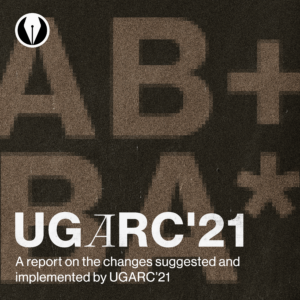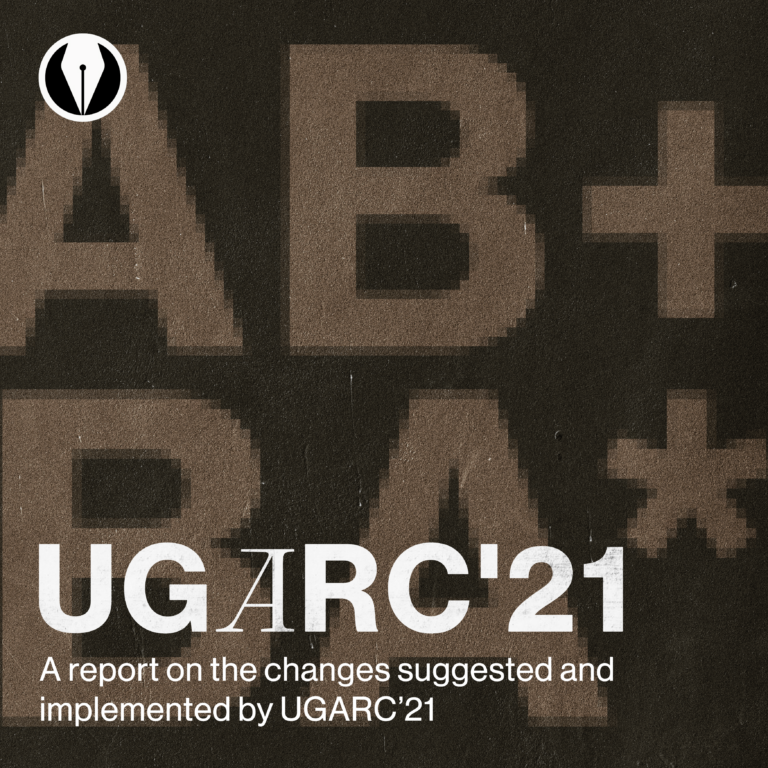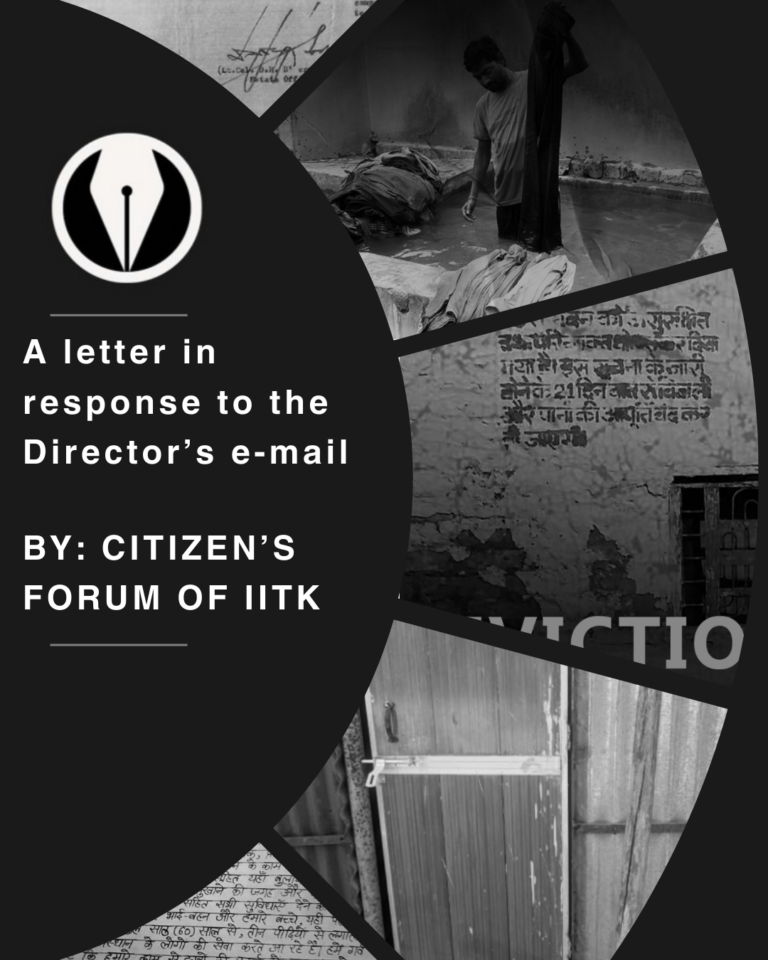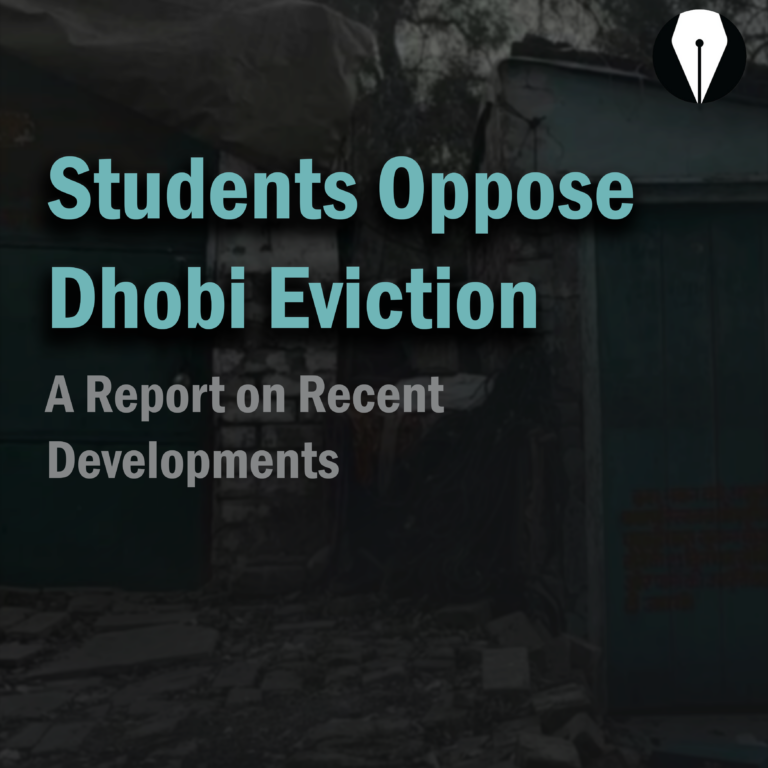For most, returning back home to India after a summer under a foreign sky is a joyous occasion to look forward to. However, there is one common observation in all the narratives – the overt difference one definitely senses as soon as one touches down in India. The roads, the people, the maintenance, everything is different to the worse. The only joy is getting back home, getting back to college, getting back to friends! However, after having spent a splendid summers at The University of Calgary, Canada under a 3-month internship period, I had to face a harsh reality; sometimes other things also take a turn for the worse!
Registering for a new academic semester at IITK requires a student to be physically present in the campus at the stipulated date. Since the organization has to deal with a rich diversity of students from different backgrounds, students are provided with a flexibility in the form of a ‘late registration’ provision – in case a student is not able to register on the stipulated date due to reasons beyond the individual’s control (medical reasons, unavailability of train tickets, etc.), he/she can get registered a week later by paying a fine of INR 1000. For the semesters I have been in campus, the fine was waived off for the students submitting veritable proof of exigencies (medical prescriptions, train tickets). Those unable to provide such proof,get registered along with the fine. If this has been the protocol, there was certain breach of it this time!
As it turns out, every semester roughly 10 per cent of the students opt for late registration, which is a huge number of exigencies for one single week. Another careful glance at the statistics and it is easy to see that there is some truth in the claim by the administration that the students are taking the provision leniently. As an economist, a valid argument could be that the marginal utility to a student of being at the place of his/her choice for another week, thereby extending the summer vacation or completing a summer intern, is more to the student than the cost of late registration. The demand for late registration is, thus apparently, quite high. Hence, in order to check the existing student behavior, the procedure for late registration now was lengthened and spiced up with reprimand directed towards the students at various outlets of the process of getting registered legitimately.
A late registration procedure requires approval of the application by Chairman, SUGC. In case the student is not a typical defaulter, there was no fuss made of the procedure and it used to be considerably, glitch-free. The present Chair in the authority had to however, be the strict disciplinarian and he would go by the rules, which are probably his own – he decided to base the case of each application on the merit of it (a good thing when you have the tenacity and patience to do it). It meant that the Chairman had to review applications equivalent to around 10 per cent of the student body, i.e. 600, in a span of a few hours. It also meant that the academic (DOAA) office would be flooded by students wishing to get registered.
Apparently all was fine till lunch, when finally dawned the realization that going through 600 applications in a few hours was impossible and punitively forcing 600 students to drop the semester was also not a feasible option, all the students were allowed to register after signing an ‘undertaking’ –
“The reasons stated by me for late registration are not compelling enough and such behavior, I shall not repeat in future.”
Sorry Sir, where are we? In an institute of national importance or in the kindergarten? He may as well have asked us to write “Sorry, I would not trouble you’’, a hundred times.
There are some flaws visible to me in following the above stated procedure. Firstly, the applications were not scrutinized before getting the ‘undertaking’ signed. Secondly, the students were figuratively made to sign this ex-officio document at gun point – told to sign it if they wished to get registered. So, there is a strong chance no one feels what they have written. Thirdly, for many students who had to reach campus after a hectic and tiring journey (like 48 hours non-stop for me with the jet lag), it seemed neither humanitarian nor ethical to ask them to go through this sadistic cameo!
The focus of this article is now to contrast the recent positive changes in the administration of the country and that of IITK. One of the first issues that took center stage after formation of the new government was speeding up the administrative procedures by eliminating unnecessary paper work and wishing to do away with the red-tapist babu behavior by using technology. This policy does not hold true in our country alone, but countries like UK and Australia have also set up separate governmental organizations to speed up the functioning of the government.
Institutions like IITs serve the students from different parts of the country. In such a scenario, the e-registration portal should be developed to facilitate students to get registered by the stipulated date without consumption of any time.It is true that introduction of e-registration at IITK might take some time but it does not make sense to move towards rigidity in a step function till constructive elaborate reforms. Also, following a procedure which is impossible to be completed in the available time is also no solution to check students’ undesirable behavior.
Throughout three years of my stay on campus, I have observed administrative procedures becoming more cumbersome and rigid with time. There have been days during my stay on campus when I wanted to nail a hook on my wall but after going through a chain of authorities to get the permission for the same, my request was rejected! And few say, IITK offers you the most liberal environment. Maybe we need to do a little more here.
The infamous late registration day was just another instance. On enquiring the reason for the same from the Dean of Students’ Affairs (DOSA), I found out that such rebuttals from the administration were to be interpreted as repercussions of the indiscipline engendering in the student body. I sincerely appreciate the concerns of the administration to bring discipline to campus life but some people probably need to understand Mahatma Gandhi when he said that the future does not only depend upon the goal you choose but also upon the path chosen. The strictness and rigidity might lead us to a disciplined campus like the authorities desire but is this approach progressive or regressive?
Update : In the 2014-15/3rd Meeting of the Senate held on 28th November, 2014, the Senate decided to allow all students to register late for any reason (subject to payment of the fine for late registration). Only in the case that a student wishes a waiver on the late registration fine will he/she have to request the Chairman, SUGC (for UG students) or DOAA (for PG students) to allow him/her to register with no late fee if he/she has a valid reason.
Written by Tejasvi Rana
The views conveyed in the article are solely of the author. The opinion section of Vox Populi provides a platform for the campus junta to voice their opinions.












Couldn’t agree more. As you talk about the e-registration portal, I start thinking about the online portals that already exist. Every student is aware about the awesomeness of OARS! Also, if you use the online portal for booking a lecture hall in LHC, the office staff just doesn’t recognize it.
Same is the nature for online complaint management system of IWD. There system is not working since last two semesters. It is hell lot of work to actually get their attention for each complaint.
One of our complaint is still pending from last six months. When enquired they are still making the estimate on expenditure to sort it out.
Students’ Gymkhana is same in this manner. Just ask any coordinator or exec, about the hassle to clear each single form.
It makes no sense that a student has to be physically present to register. In this age of global connectivity such requirements only reveal that we are still living in the 19th century. What is the purpose of
registration anyway? To see that you are on campus or to know what courses you are going to be taking in a given semester? I thought IITK has a super computer and a great CSE department. Why
can’t life be made easier from mundane tasks?